Editor’s Note: ‘Letters from the Industry’ is an ongoing series on Life & Thyme where professionals from the culinary and beverage industry speak on their own behalf about their experiences, struggles, challenges, and journey through life. Today’s letter is by Blair Smith, who is the shop manager at Augie’s Coffee in Redlands, CA and is competing in the U.S. Coffee Championships for the U.S. Brewer’s Cup.
Letters from the Industry
— 03—
My coffee career began with a Karate Kid-style training. I relate “wax on, wax off” to the many gallons of milk I went through making milk turn into white paint, able to finally glide across the crema of a cappuccino into beautiful curves. It was rigorous and frustrating, challenging and disheartening all at once. But with the physical training also came the knowledge of specialty coffee. I was told of the coffee cherries, the people who grew them and picked them, and I imagined the hands of the farmer. I imagined their hands as they cared for the seed that would one day be a beautiful smell, the start of someone’s day, the comfort, and the everyday beverage of choice for so many.
This ritual, this journey that coffee takes is so beautiful and amazing to me. It is forever surprising, and I am still captivated by it.
Fast forward two years, add in a cross-country move, and I am now preparing for the U.S. Brewer’s Cup Competition. I wouldn’t be even competing without the support, opportunity, and confidence of my team at Augie’s Coffee Roasters. I am unbelievably grateful to have this opportunity, and to compete alongside some really incredible baristas. Since I still consider myself new to the specialty coffee industry, I never expected to place so well in the regional competition. I wasn’t in it for the possibility of winning, as much as the process of preparing for the competition. I knew that pushing myself to compete and putting myself outside of my comfort zone would in turn make me a better barista. Before preparing for Brewer’s Cup, I would have considered myself more skilled in preparing espresso. Pour over coffee was something I had only done on my off-time before working at Augie’s Coffee. Even with this in mind, I was eager to start the process of, first, finding a great coffee, and then highlighting it with the perfect brew method. I knew right away what type of coffee I wanted: a natural processed Ethiopian, simply because those were my favorite. I also knew that using a natural processed coffee was a risk in competition, and sometimes produced funky lingering flavors that weren’t favored by the judges.

Still, I knew I wanted to stay true to my own feelings about natural processed coffees, because they are incredibly special and unique—a true art form in coffee. Natural processed coffees are dried on raised beds, allowing the natural fruit flavors of the coffee cherry to be soaked up by the bean. Some are dried at different temperatures, at different altitudes, for different amounts of time. This is what makes them so incredible, and so outstanding.
I found my ideal natural in the Ethiopian Misty Valley. The Misty Valley had a beautiful grape, chocolate, juicy sweetness. I loved the range from blueberry to grape jam, hitting sweet notes of berries and chocolate covered raisins. It was very enjoyable, and definitely stood out for me as a representative of my favorite region. I didn’t make the process easier when I decided to choose the Chemex with the reusable Kone filter as my brew method of choice. The Kone is starting to appear in cafés, but is often misunderstood and misused. When brewed like a regular pour over, it tastes over extracted and bitter. The key I found is to essentially dump all of the water in a continuous pour, which almost contradicts the recipes of other pour over methods. Still, I insisted on representing the Kone and the Chemex because I loved the match-up of the old design with new innovation.
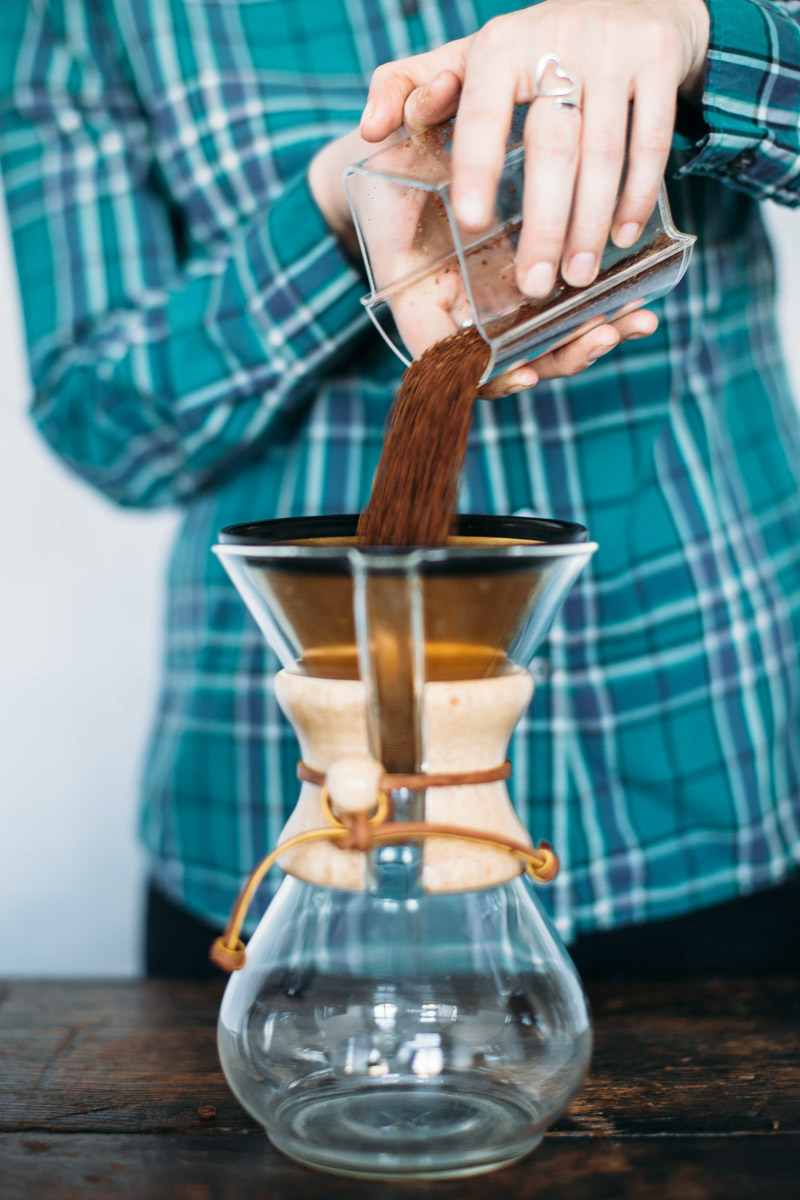 |
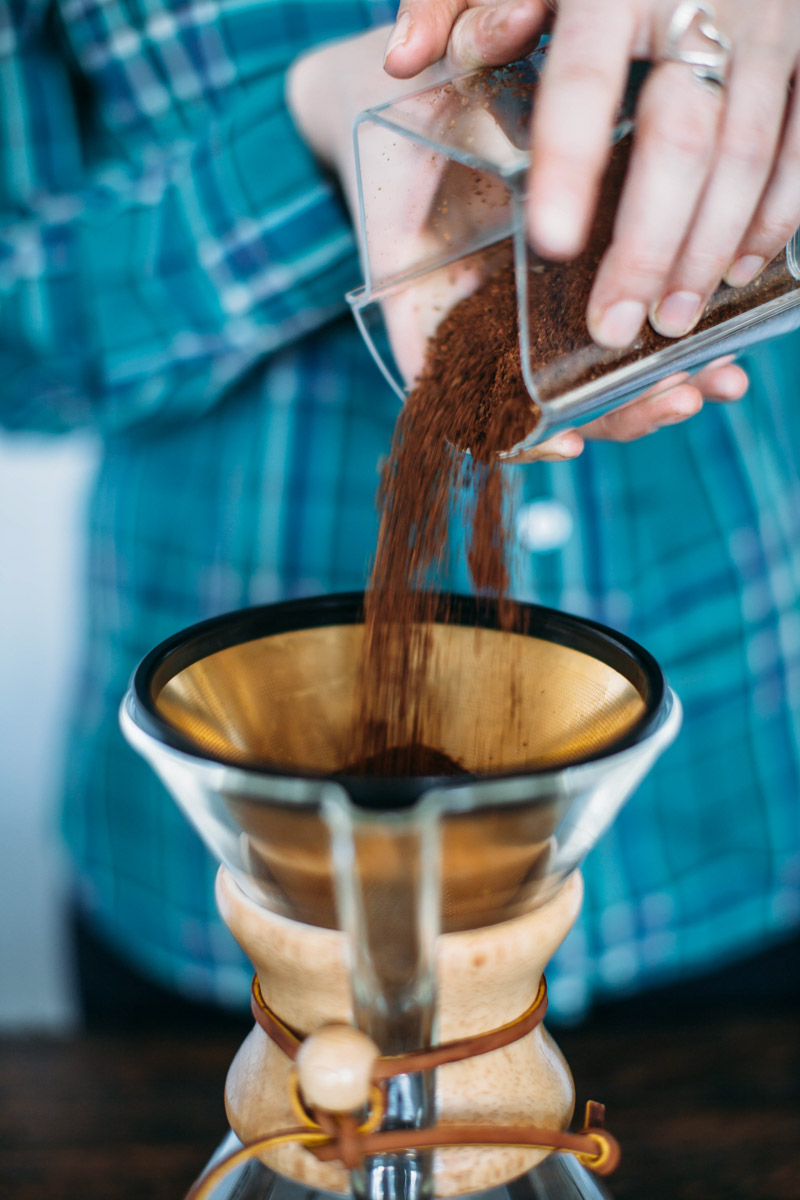 |
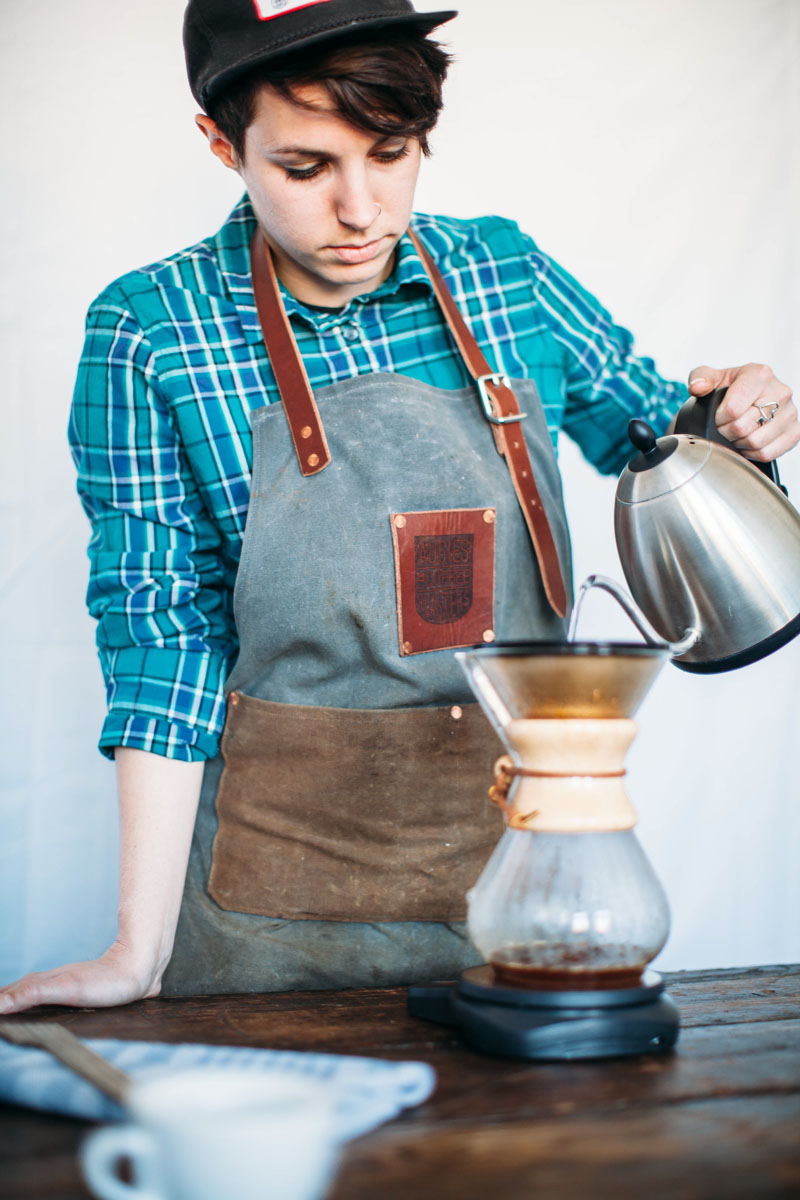 |
 |
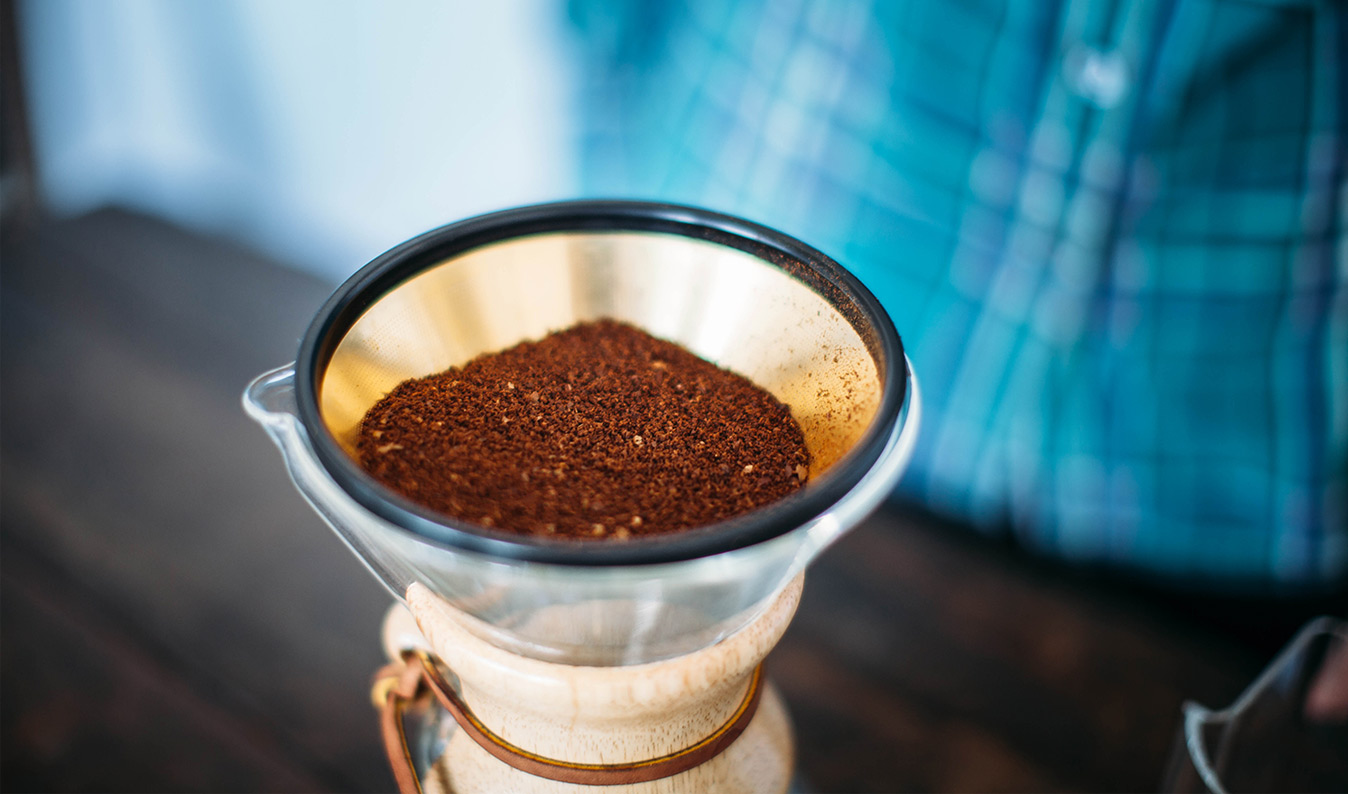
The Chemex is from the 1940’s, and has proven to be one of the best and most elegant designs in coffee. The Kone filter is still new to the coffee industry: American made stainless steel, and reusable. I got the chance to talk to the creator of the Kone, and hear first-hand how amazing this filter is. I feel extremely lucky to have been able to showcase both of these instruments in competition, and could not be happier with the results. In the regional competition, there are two rounds; a compulsory round and a table service round. In the compulsory, each competitor is given a blind coffee, and after practicing for twenty minutes, allowed seven minutes to prepare three separate brews for a blind judging. The coffee is judged on everything from aroma, acidity, body, sweetness, and overall taste. The top six scores move on to the table service round where competitors are allowed ten minutes to give a presentation on a coffee they’ve brought, and prepare it three times. They are scored similarly to the compulsory round, with presentation scores in addition. After placing fifth out of six in the compulsory round, I was excited just to be able to compete with the Misty Valley. In the days leading up to my competition, I was not overly impressed with my memorization skills, and also hadn’t been overly impressed with how my coffee tasted after trying some last minute changes. In a practice runthrough at Augie’s, I completely blanked and forgot my speech in front of a room full of friends and coworkers. I left not feeling any better about my presentation, but determined to at least brew a great cup of coffee. I remember the night before my competition, picking out exactly which beans I would use, tediously searching for perfectly roasted beans with no physical defects.
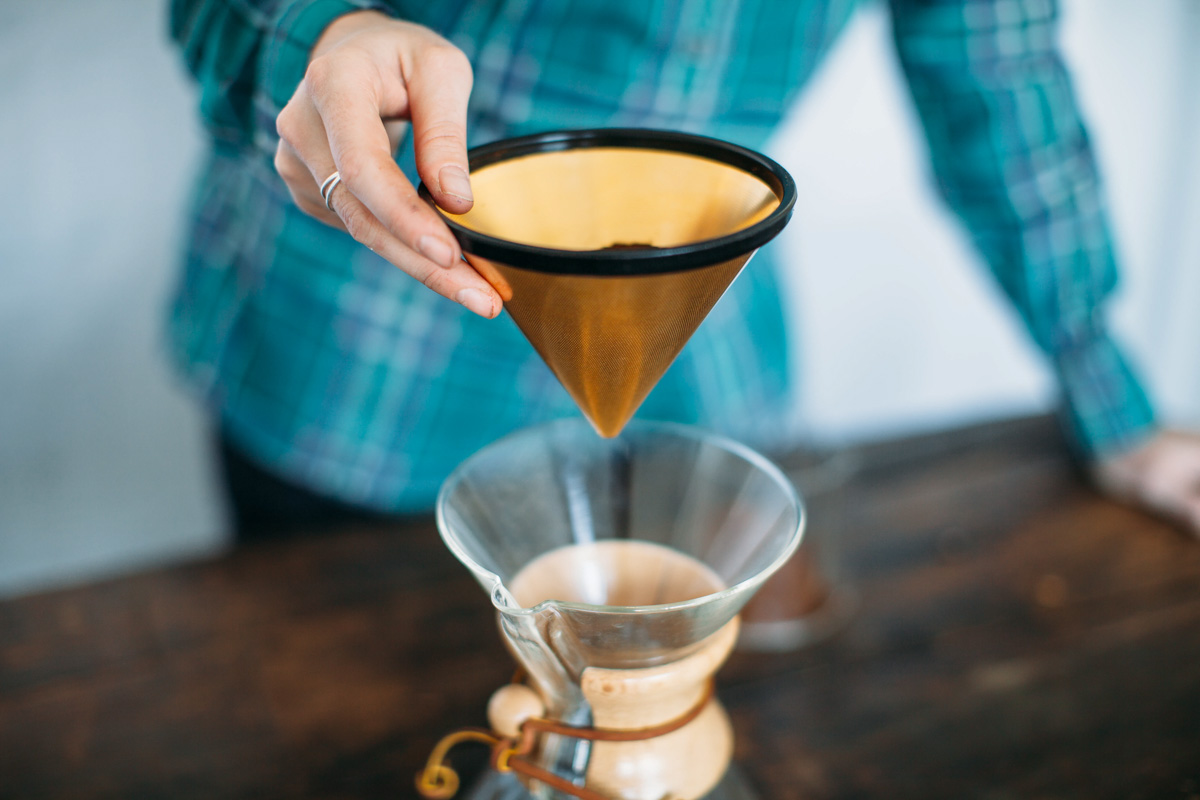
When it came time for my competition, I remember thinking, “This is my last chance, the only opportunity I will have to execute this coffee for this group of judges.”
I had no time to deal with nerves and, thankfully, I didn’t have to. I was really calm, with a kind of out-of-body feeling, only focusing my attention on making good eye contact and speaking slowly. After nailing my presentation for the first time, I felt instantly relieved, and even more so after tasting the remainder of my coffee. I felt like I had done my part, and it was now up to the coffee to shine. When they announced the results, I waited to hear my name, and soon it came down to the final three. In my head I was thinking, “Oh my God. I’m top three; I made nationals.” When I took second place, I just felt extremely validated, that I had listened correctly to what I was tasting and that, in a sense, I knew what I was doing.
So what now? I am preparing for the USBC, a national competition. The stakes are insanely high; the winner competes for the U.S. in the World Brewer’s Cup.
 |
|
 |
 |
I’ve thrown all I’ve known out the window and retraced my steps over and over trying to get the best results for my brew method. I have revisited recipes, playing with different techniques, and have all cupped all sorts of coffees. The biggest thrill for me is wrapping my head around the privilege that I’m even able to experience these coffees. So many people, including the farmers themselves, will never try these coffees. They all have a special place in my experience as a barista. I will remember names of coffees, different regions, different tasting notes, and different thoughts about each one. For me, it feels like I am experiencing the end result of a long journey. These coffees have been handled by so many, and each person has to be caring, knowledgeable, attentive, and delicate. Each cup is an opportunity to show the work of not only the land, but the farmer, and the roaster.







Our comments section is for members only.
Join today to gain exclusive access.